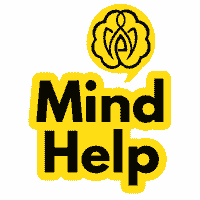Dyslexia Test
Does your child show difficulties in reading, writing, computing, and comprehending learning materials? Does your child show an inability to understand alphabetical symbols and cannot concentrate on his/her studies? Take this online Dyslexia test to know if your child has dyslexia-related symptoms.
What Is Dyslexia?
Dyslexia is a language-based learning disability that causes difficulties with word recognition, spelling, and reading. Dyslexia is classified as a neurodevelopmental condition and is closely related to dyscalculia (difficulties in understanding mathematics), dyspraxia (difficulty in activities requiring coordination and movement), and dysgraphia (difficulties in writing).
It causes an overall impairment in a person’s learning abilities. It has been observed that Dyslexia frequently gets ignored and unrecognized. This condition is commonly detected among children whose parents and other family members had the same difficulties. One of the main causes of dyslexia is genes and heredity. Some of the most common symptoms of dyslexia are-
- Reading difficulties
- Mixing up words
- Having problems with spelling, grammar, and punctuation
- Inability to decode sequences.
Read More About Dyslexia Here
Below is our free DYSLEXIA CHECKLIST to help you find out if your child has Dyslexia-related Traits.
Instructions For Taking The Dyslexia Test Online
A list of questions is mentioned in this CHILDREN’S DYSLEXIA CHECKLIST which relates to life experiences that are common among children who have symptoms of dyslexia. Please read each question carefully, and indicate if your child has experienced the same or similar signs.
Please note: This online dyslexia test is not a diagnostic tool and only meant for self-assessment.
No. of questions – 22

